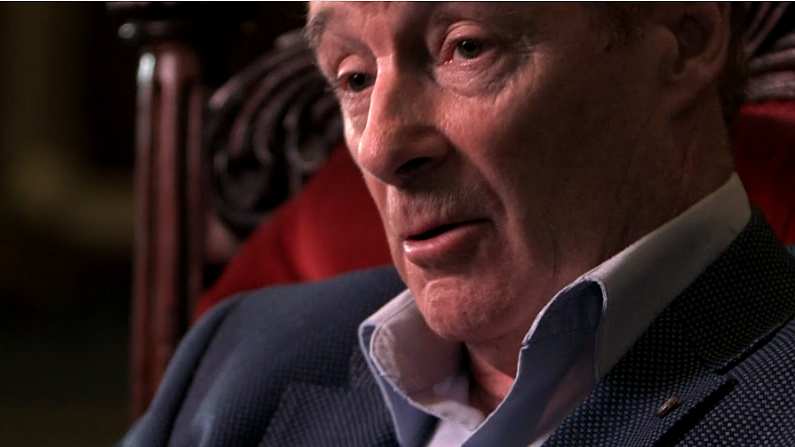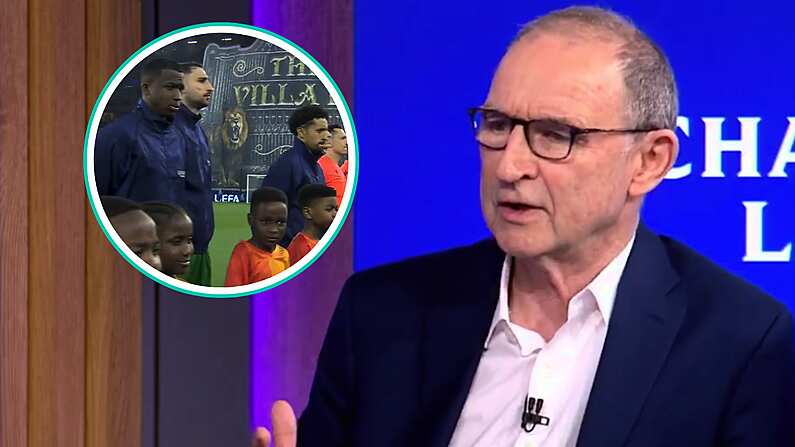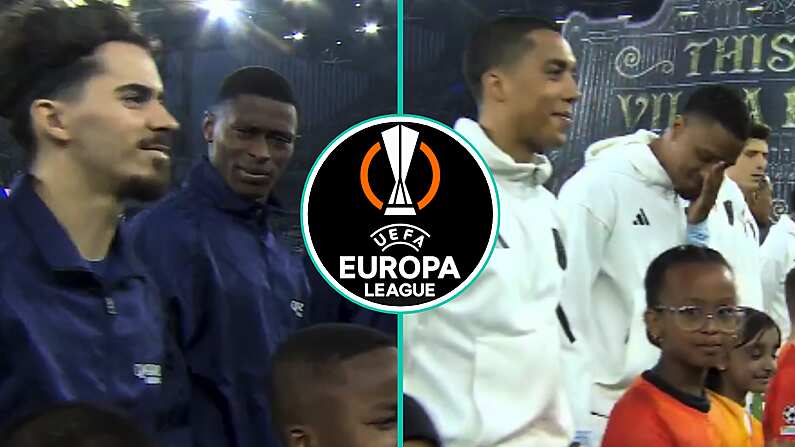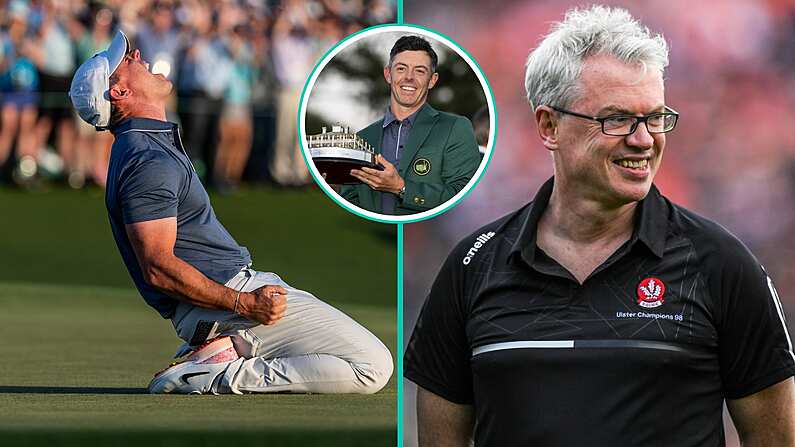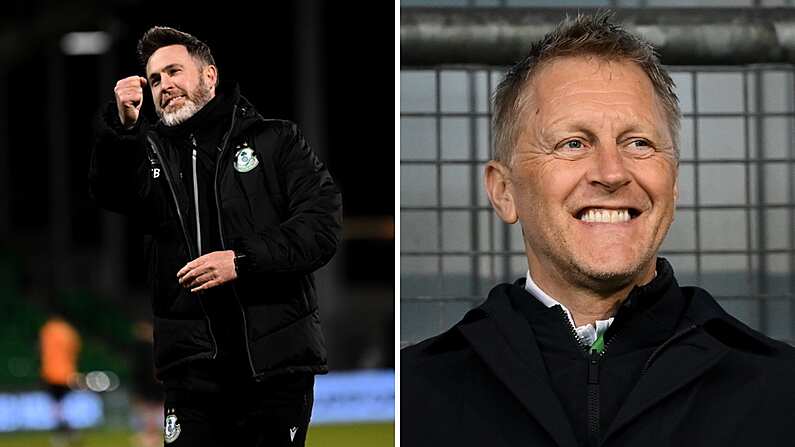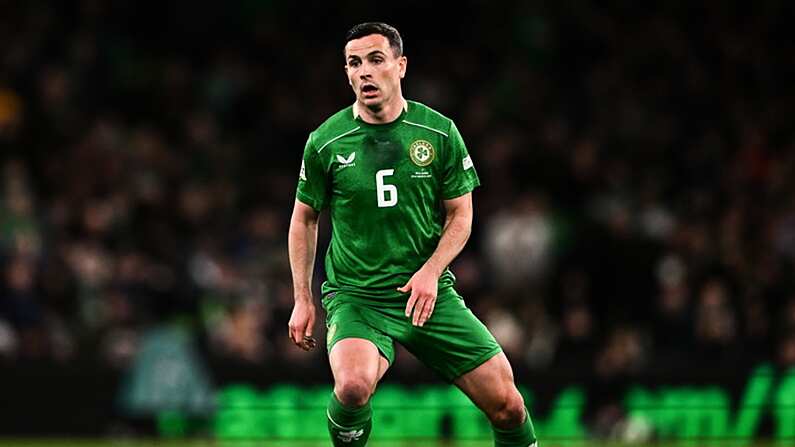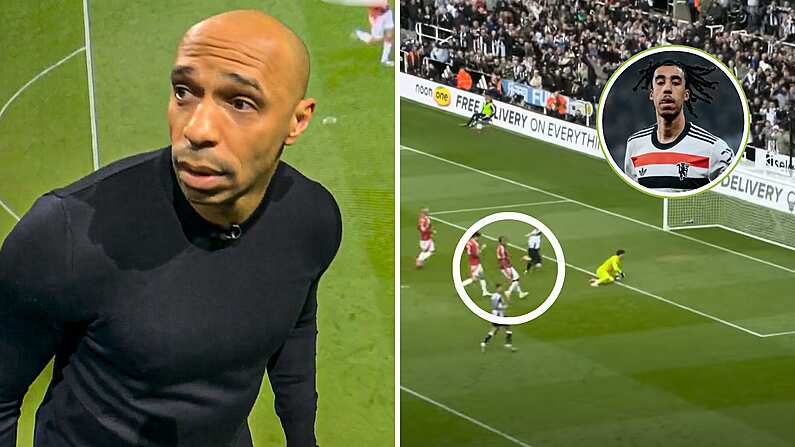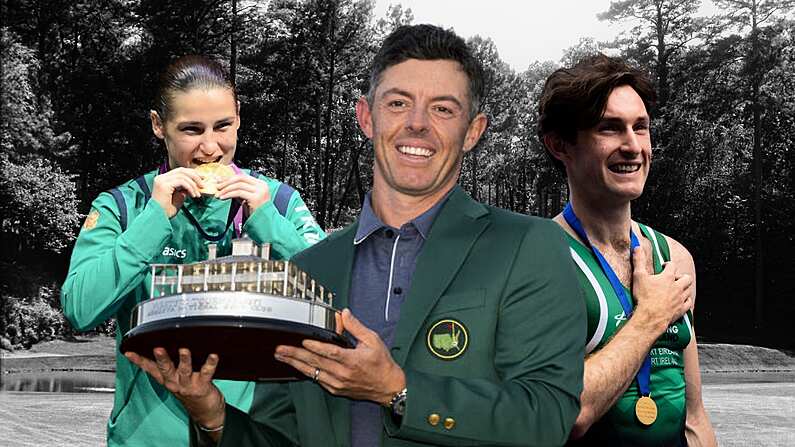The FAI's approach to youth football today is influenced by the Dutch, but all that was needed to herald the glory years at that level was a bit of Dutch courage.
20 years on from his guiding Ireland to two European titles in the space of three months, Brian Kerr's unprecedented success with the Republic of Ireland's youth teams is retold in a new documentary by Kevin Brannigan entitled Kerr's Kids.
It begins with the tale of how Kerr got the job in the first place.
We had beaten Shamrock Rovers on a Friday night, and I was in very good form. I knew that it was the closing date, at 5pm that evening, but I decided late that night, after having one or two beverages, and a sandwich or two, that I would get down to Merrion Square and put a note in the door saying I was interested in the job.
Kerr applied for the job, he says, out of annoyance at the "lack of respect" that had caused "the demise of our youth international teams". His intention "was to restore a bit of order to it and give the job the respect it deserved".
And how.
Third at the U-17 world championships; winners of the under-16 and under-18 European championships; a realignment of confidence and expectation such that a last-16 exit to hosts Nigeria on penalties at the 1999 World Youth Championships was considered an underachievement.
The documentary features footage of all of these triumphs, along with testimony from myriad former players including Robbie Keane, Richard Dunne, Damien Duff, and John O'Shea.
The star, however, is Kerr. He emerges as another of the figures that Ireland should lionise but too often disregards; a kind of anti-begrudger.
The writer Brendán O'hEithir characterised the begrudger as being governed by "a deep and abiding doubt about our ability to run our own affairs as well as others might run them for us", and what emerges from this documentary is Kerr's deep conviction that his and Ireland's way of doing things was the right way.
He is no ideologue, however: he was a pragmatist, and it is striking in the documentary to hear him talk of his approach, which valued possession over hopeful long balls, as being the best way to win at the world championships in Malaysia rather than a kind of alchemy of which we were incapable of striking.
"It was always about playing the ball into players' feet, we couldn't afford to bang it and chase it, we didn't have the players and the conditioning to do that. We had to conserve our energy".
Kerr says that he "didn't enjoy looking at" the stubborn and English style that Jack Charlton foisted on Ireland, the effectiveness of which was undermined in the searing heat of USA '94. Darren Fletcher spoke on a recent edition of Monday Night Football of how much more draining it is to sit and defend deep without a desire to keep the ball once it has been won back, and this is still haunting the Irish senior side to this day: how to reconcile the fatigue in Ireland's legs in the second half of the Euro 2016 game with France with the fact that those legs covered the least amount of ground in the tournament?
It is indicative of Kerr's panoply of talents that he fostered a remarkable team spirit without that talent ever being his calling card, which cannot be said of some Irish managers.
The unity and depth of feeling among his underage squads is tangible even to this day: Damien Duff says that the only dismay comparable to the Henry handball was losing to Nigeria in '99; Richie Sadlier admits that he never personally thanked Kerr for all he did as he knew he would not be able to hold back the tears.
There is a sombre tone to the end of the film, as some of Kerr's kids recount their thwarted football dreams, their careers in England plagued by injuries, bad luck, and an indifferent world, the promise of the success under Kerr going unfulfilled.
It serves as a reminder of how cruel, brutal and unforgiving an environment English football is for young players, and this proved to be the first generation of players affected by the arrival of Arsene Wenger to English football and the subsequent widening of scouting and academy intake.
This globalisation left Irish football behind, and is only now being addressed by the FAI with the setting up of the Emerging Talent Programme and the appointment of Ruud Dokter, the ambition being that League of Ireland academies will be of such a level that players can develop here and then jump into shark-infested waters abroad as better footballers and more mature people.
While better late than never, it is nonetheless late.
Irish football has been plagued by a suspicion of its own ability to adequately serve its interests, and thus everything from players to managers to style of play to player development was sourced from England.
England realised that this system was broken before Ireland did.
Kerr was capable of looking beyond England, but most critically, he was capable of looking inwardly too.
Kerr's Kids celebrates the success Kerr and his convictions yielded over a golden period; everyone else must lament that the courage to trust it is only now being addressed by the Dutch.
Kerr's Kids is being shown on eir Sport on Friday, November 23rd at 10pm.
See Also: Martin O'Neill Continues To Make Moves To Tie Up Potential Irish Internationals
See Also: Shane Supple Announces His Retirement From Football


